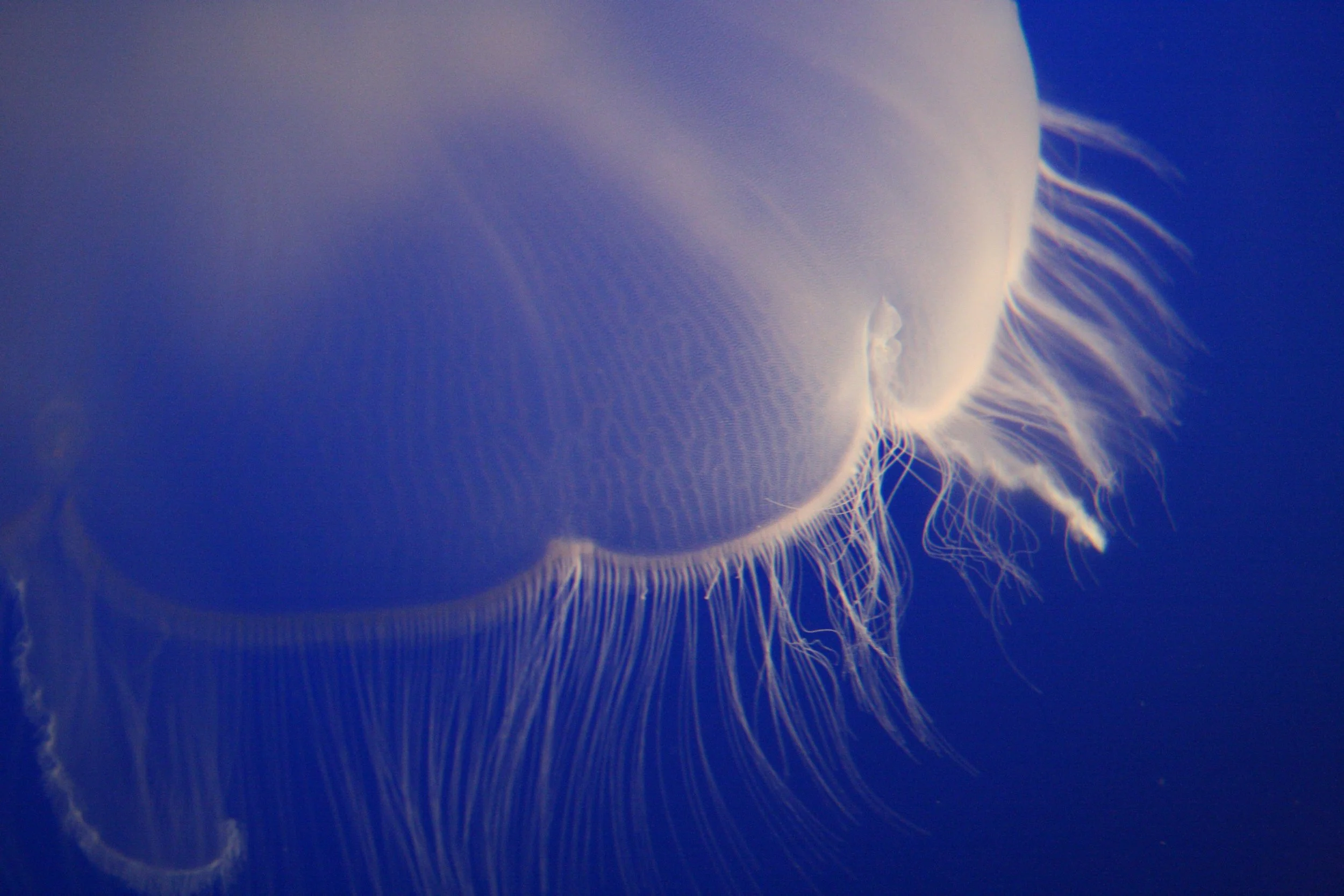HOW CAN people with disabilities PARTICIPATE IN MARINE CONSERVATION?
Have you ever woken up and felt like your body no longer belonged to you? Maybe it was a chronic illness diagnosis, an injury that shifted your day-to-day reality, or simply the slow accumulation of pain or fatigue that makes the world harder to move through. I have.
About a year ago, I herniated a disc at L5-S1, and it changed everything. It’s taken time (and grief, and rest, and redefining) to understand how my role as an activist still fits, especially in the field I love most: marine conservation.
Traditionally, marine conservation work demands a lot of physical ability; diving, hiking shorelines, carrying gear, enduring the elements. The "gold standard" is often a scuba certification and the stamina to swim, lift, and spend long hours in and on the water. But what happens when your body no longer moves that way?
How do we continue to serve and protect the ocean when we can’t physically access it in the same ways?
This is why I set out to explore how disabled people—myself included—can still make meaningful contributions to marine conservation without needing to dive to the ocean floor or swim miles offshore.
Here are 8 ways to participate in marine conservation when you're not physically able to be in the water:
(These are for anyone with limited mobility, chronic illness, neurodivergence, or just a different relationship to their body or environment.)
1. Join or start a remote citizen science project
There are dozens of global projects that let you contribute to real marine research from home. You can help classify ocean data, identify species from webcam footage, or even report marine debris sightings online.
Explore: Zooniverse’s Marine Citizen Science Projects
Also try: Marine Debris Tracker
2. Use art and storytelling to advocate for the ocean
Art is a powerful tool in marine activism. Whether it’s painting sea creatures, writing poetry about your relationship with water, or creating zines on ocean health, your voice matters. These creative expressions can be shared online or in local spaces to build awareness. Studies show that if you care about climate change and share your passions with your friends, they will be more likely to care about climate change.
See examples: Washed Ashore: Art to Save the Sea
Start your own: Make a zine with Sea Youth Rise Up
3. Support inclusive conservation policies and advocacy
Even if you cannot be in the field, you can still shape the future of marine conservation through public comment, petitions, and campaign support. The voices of people with disabilities are often left out of environmental policymaking, and that gap matters.
Take action here: Ocean Defense Initiative Action Alerts
Learn about inclusive policy: The Ocean Foundation
4. Participate in accessible marine education and webinars
You can deepen your knowledge and connect with others by attending online marine talks, workshops, and certification courses that center virtual or low-impact learning.
Some offer scholarships or free access.
Watch free: Ocean Conservancy Webinars
Take a course: Marine Education with National Marine Sanctuary Foundation
5. Create content that spreads ocean literacy
Use your social media, blog, or platform to teach people about marine conservation in accessible ways. Share facts, uplift Indigenous knowledge, or spotlight the role of disabled people in environmental care. You don’t need credentials to speak from your truth.
Get inspiration: Black in Marine Science
Free toolkit: Ocean Literacy Framework
6. Fundraise or redistribute funds to marine causes
If you have access to networks or platforms, one impactful way to help is directing resources to underfunded marine conservation groups, especially those led by disabled, Indigenous, or coastal communities.
Donate directly: Seeding Sovereignty’s Land and Water Defense
Organize your own: Peer-to-Peer Fundraising on Givebutter
7. Connect with and build accessible conservation communities
Find or build a network of others with disabilities, chronic illness, or different bodies who care about the ocean. These mutual aid-style communities create more space for care-centered organizing and collective impact.
Start here: Disabled Hikers Community
Also: Intersectional Environmentalist Directory
8. Reclaim your relationship with water through healing
Marine conservation does not always have to look like activism. Rest, ritual, and tending to your relationship with water is powerful. Bath rituals, water meditations, and ancestral water stories are all forms of connection that count.
Listen and reflect: Decolonizing Water Podcast
Try this: Guided Water Meditation
Final Thoughts
Disability is not a disconnection from the earth or ocean. It is a different way of moving through the world and our movements still matter. You don’t have to “overcome” your body to protect the planet. You only need to begin from where you are.
Marine conservation needs you.
All of you.
Just as you are.

